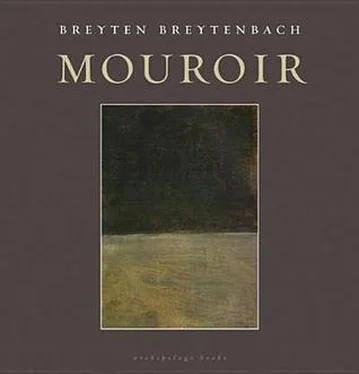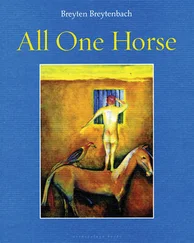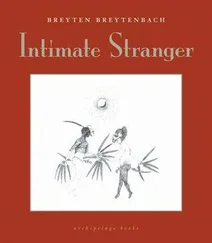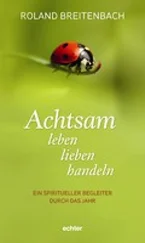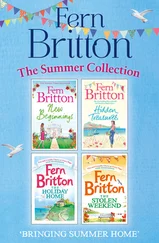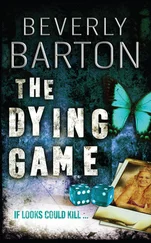They heard something like a flutter and an anguished slobbering noise. Succeeded by silence, they claimed afterwards. No. No one had sat up with him, not even the ambitious secretary of the thick greenish name. When they came across him outside on the balcony he was already gone. With blood flecks on the white nightshift. Ants — weird how suddenly they appeared from nowhere in this sterilized century in this building! — were already active on the fragile corpse. Just as black — only smaller and more granular — as the clutch of feathers in the gaping mouth which stifled him at birth. And the humid prints in the wide-open eyes were not even dry yet. Were these then, after all, tears of joy?
Will the dead
Hold up his mirror and affirm
To the four winds the smell
And flash of his authority?
ROBERT LOWELL
There was a man, whether from Japhet or from Novgorod I do now know; and he was very sad. Pee — too — wee! Pee — too — wee! The man said out of sadness there where he sat by the window and watched thick blue rain falling from the sky so much so that all the blueness had fallen from heaven and the pee — too — wee he groaned again dejectedly for there was no gaol in his county. That is why he was so sad. There were old people and there was no prison to put them in; there were fat people and clever people and people with glasses and knotty veins and half-dead people and some all humid with cancer and property owners and people with skirts and corns and real people and nowhere a gaol to lock them up. There weren’t any black people in his country but nevertheless not even the smallest or cheapest little old gaol or boop or slammer or calabuso or ballon or clink or taule or cooler wherever and however to keep them separated. Pee — too — wee the man sighed and from pure desperation put his hands to his face and stated pulling. He tugged and pulled and suddenly his face gave way and quite coolly remained sitting in his hands, shivering. The man laid the face in his lap and the two of them stared at their mutual lameness. Pee — too — wee ! Squeaked the man at his wits’ end as he doesn’t quite know what else to say. And wee — too — pee his crocked face answers all plucky. Who are you to pee — wee — too me? asks the man very angry highly upset all of a sudden the hell in. I shall curse thee — I’ll say “dammit” to you. And also dammit and buggerit and fie and whoreson and forsooth and without munching my words a powerful mammit. The man didn’t know all that many curses and the others which he did know he dared not employ for if he started sounding off and got himself arrested for private disturbance of the peace there would have been no gaol to punish him. Now I am properly right up to the nostrils in the whatsit, the man thinks. And who — pee — too taunts his face with the thick blue tears in the eyes. Just you wait a little while, my china, said the man as he put his face on the table most careful not to crumple the eyelashes, I’ll show you who the master is around here the cock on the dunghill; and through the window he climbed out into the rain with the intention of going to the shop owner across the road to buy a cocked mirror with which to confront the cocky face. But when he had his back turned the face immediately saw its chance and took the gap moving from the table to the floor through the front door over the veranda down the street ears in the neck. The shopkeeper asked the man and who do I have the honour to be serving? and the man became as red as blood with anger because he had since long been a faithful customer. And mirror I do have, the shopkeeper murmured thoughtfully, but oh my dear they seem to be all empty. Thereupon the shopkeeper happened to look through his shop window and clapped his hands and started crowing with the giggles — that is to say that the hand-clapping frightened the laughter-crow in his belly to life — and he shrieked whose face is running there then? First the man wanted to curse but he reconsidered remembering that he had already packed out all his usable curses in the house across the street; so he jumped up and started running down his face huffing and puffing. In front the face runs and then the man follows and they run and run and run; only, it is more difficult for the face to move because the man is not bothered by running tears in the eyes. Well, my friends, had there been, as it behoves a proper country, gaols down there, these events would never have taken place. And if I’d known whether the man hailed from Japhet or from Novgorod or perhaps from Windverlaat, I just might have been in the position to complete the story to all our satisfaction.
They’re probably still running now pee — too — wee wu — wu — sho .
It took place in London and it must have been after the war since a soft wind, tepid, warm nearly, was now sweeping over everything and curving the grassplumes. The grass was not yet dry. There was just a touch, a whiff, of melancholy in the air. Blue-glass sky. Actually incomprehensible toppling over into the void of course. My wife and I, in the company of K and his family, approached the city from the west in his powerful car. During the autumn you enter the city by a highway nosing all along the hem of the ocean and which at times has to hang on to breathtaking high bridges connecting the crests above the chasms. Hanging above the cracking of seabirds and the tinkle of wavelets against the rocks. The bridges are the skeletons of rotted-away hills. Down below in the lie of the gorges then the brilliant flash of water in the fiords. Within the city walls too you may from such an elevated bridge squint down a declining crevasse to a floor covered with bushes, tall grass, shrubs without berries. (Dry now, because inside the circle of walls.) Seen from up high the few houses isolated down there are the doll constructions of children, the excrescences of the imagination, faults in glass. Near those vague houses (neglect has taken over) are parked the cabs and the caravans of gypsies with padded leather jerkins, of fortune-hunters and fortune-tellers, of cattle farmers with gaiters who camp there when they have to bring their animals for slaughter to the city’s abattoirs. To that place the couples who have entered upon a short-lived agreement will come then for hasty intercourse with casual implications of the flesh (the dryish barking coughs, the stainless-steel tongues), probably assuming that down in the coppice and virtually on top of the garbage dumps they will be invisible to the eye of the traffic. And who cares. Yet, everything is very evident from up here, revealed like the sweaty lifeline of the hand: the brown jackets with turned-up collars of men with black side-whiskers, the rusted mudguards of some obsolete lorries, pantyhose like a love letter on a bent twig, the naked buttocks competing half moons in the grass where tails and tracks have already been trodden and a whitish substance forms a crystalline crust over the stalks.
All along the ridge of the hill blocking off one end of the valley the city is strung. Cream? Froth. In the first rank the buildings stand precariously on the very lip of the abyss. Crumbling away. There are palaces with broad paved terraces receiving the sun like some luxurious inundation, the sun a benevolent torrent, streaming from the glass-blue jar, and steps leading to vaulted porches with decorations and flourishes moulded in the stucco. There are other buildings with multiple storeys, the cream layers of a cake; and some are sober of colour and of others only the posturing façades remain. Here, in the central circle, an exclusive quarter of the city, the front doors have keys of solid gold, there is a structure of grey concrete like a bunker or a fort sunk into the protecting red earth. Over the walls and ramparts showing above ground, plants and tussocks of grass started growing. The semblance accorded by green creepers, by trails — the appearance of dilapidation (watch out!) is deceptive however, and in fact it is intended only to allow this ultra-modern complex to blend with its background in such a fashion as not to disturb the historical atmosphere. From close up you see the extensive glass windows, and behind those panels full of clouds American tourists with binoculars and cameras bobbing on the extravagantly stained bellies and with highballs in their hands slowly cruise hither and yonder, flipping their tails. Sharks’ teeth snigger. Shark people. “Hi there!” One knows too that there are subterranean swimming pools and the most up-to-date recreation facilities, massage parlours, cocktail bars, quivering dance floors, one-armed bandits, an artificial cherry orchard vibrating a wind, whorestalls, exchange offices, turntables, map readers, chemin de fer and other bagatelles, as also counters for airlines (including that of Nomansland). It is in reality a hotel from where the plebeians — with low profiles, it is true — may have a peek at the aristocrats. On the one grey wall are fixed discreetly the letters: BUCKINGHAM PARK. Conspicuously different and as if pushed aside, there is, in the last line of the circle of buildings, a simple single-roomed farmhouse with a roof of sods — but this house is so situated that it has an unimpeded view on the west where in the fading light the folds and the heights of a distant green land (a medal) can be seen to be glowing like wave-crests. (Deeper in the city, on a more intimate square, I later see in the display window of an art gallery a painted reproduction — 40cm x 75cm, canvas on stretcher, in a gilded frame, origin guaranteed — of this same little house, stark now in simplified lines and volumes, but imbued with a tremendous light — one may say a searchlight — pouring forth from the heart of the structure through its windows, and with underneath a caption, on a copper plate, reading: “From this house the light was switched off over Ireland during the last war”. There was something heroic — shall I say manful? — and at the same time tragic about the painting as also about the dark and uninhabited house. But I suspected that this was a circumstance we could sense and yet not elucidate to our satisfaction. Like listening to the mournful song of a survivor from an earlier generation, ancient and with blunt teeth: a life-wrecked person. And in the language of that generation — with alternative forms, other types of diphthongs, whistling w-sounds, constructions foreign to the ear, contaminations, an upwelling: “voor wat meer coper ende tabacq als andere hottentoos genieten”.) (I have many suspicions.)
Читать дальше
